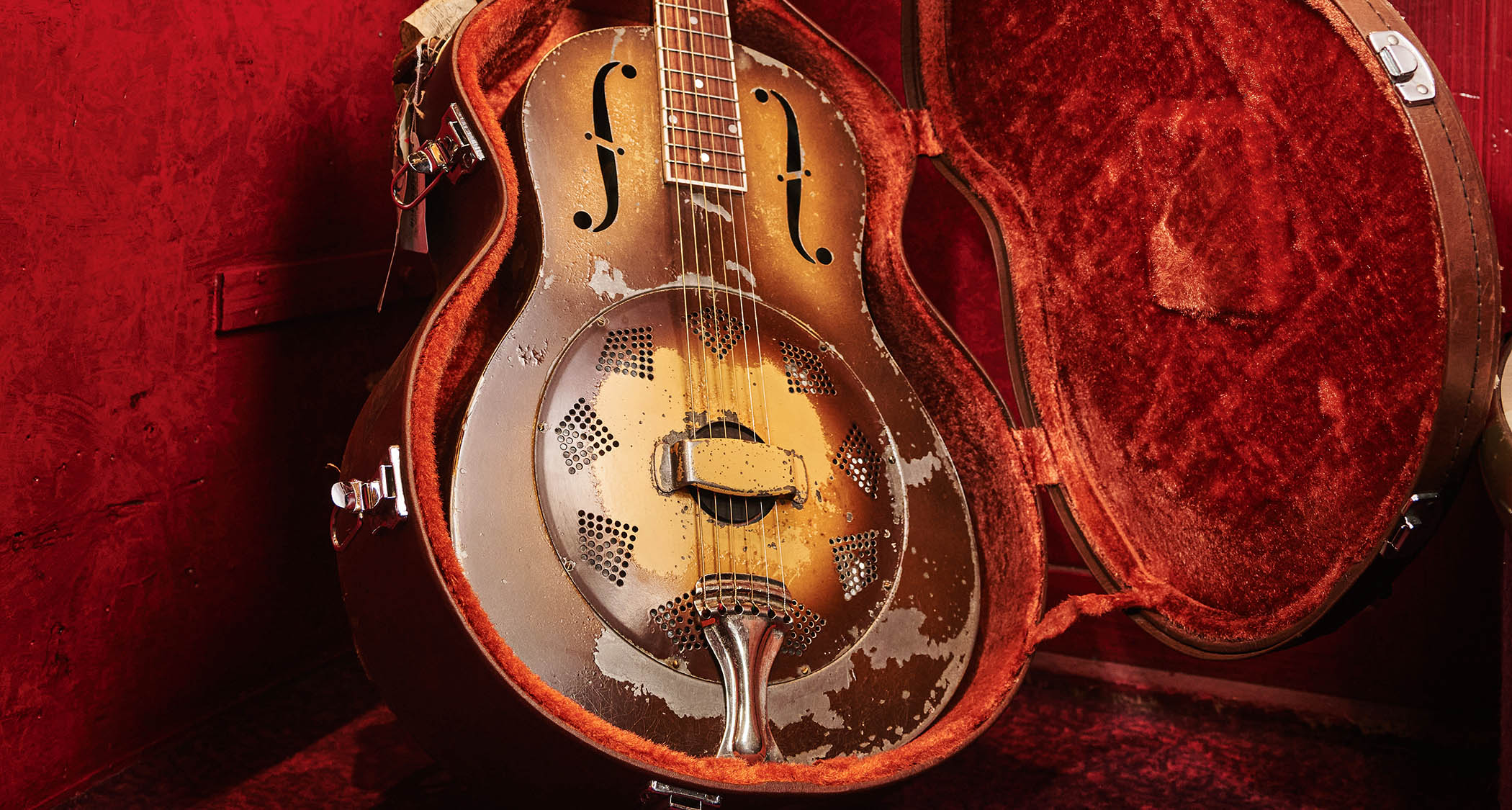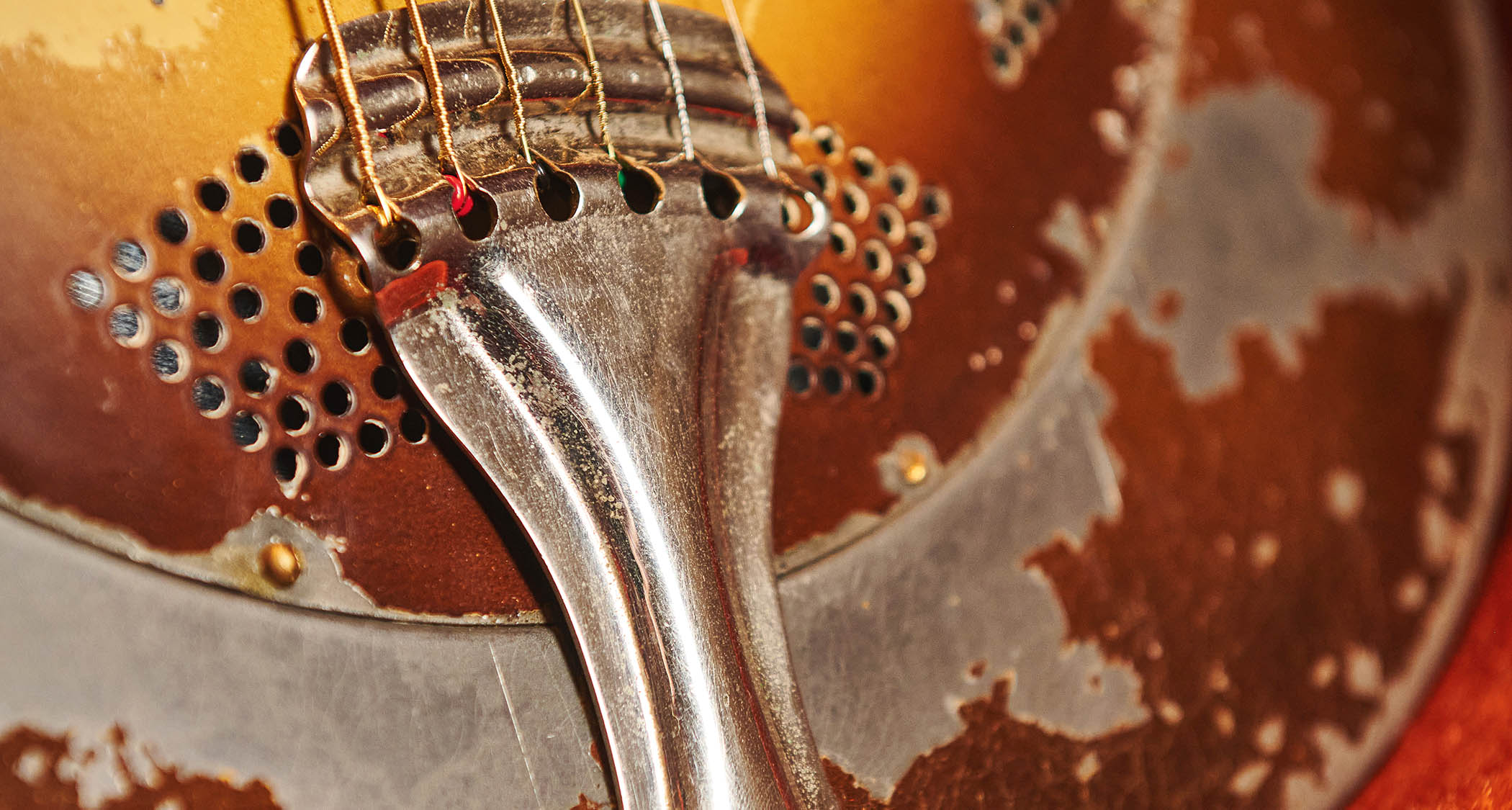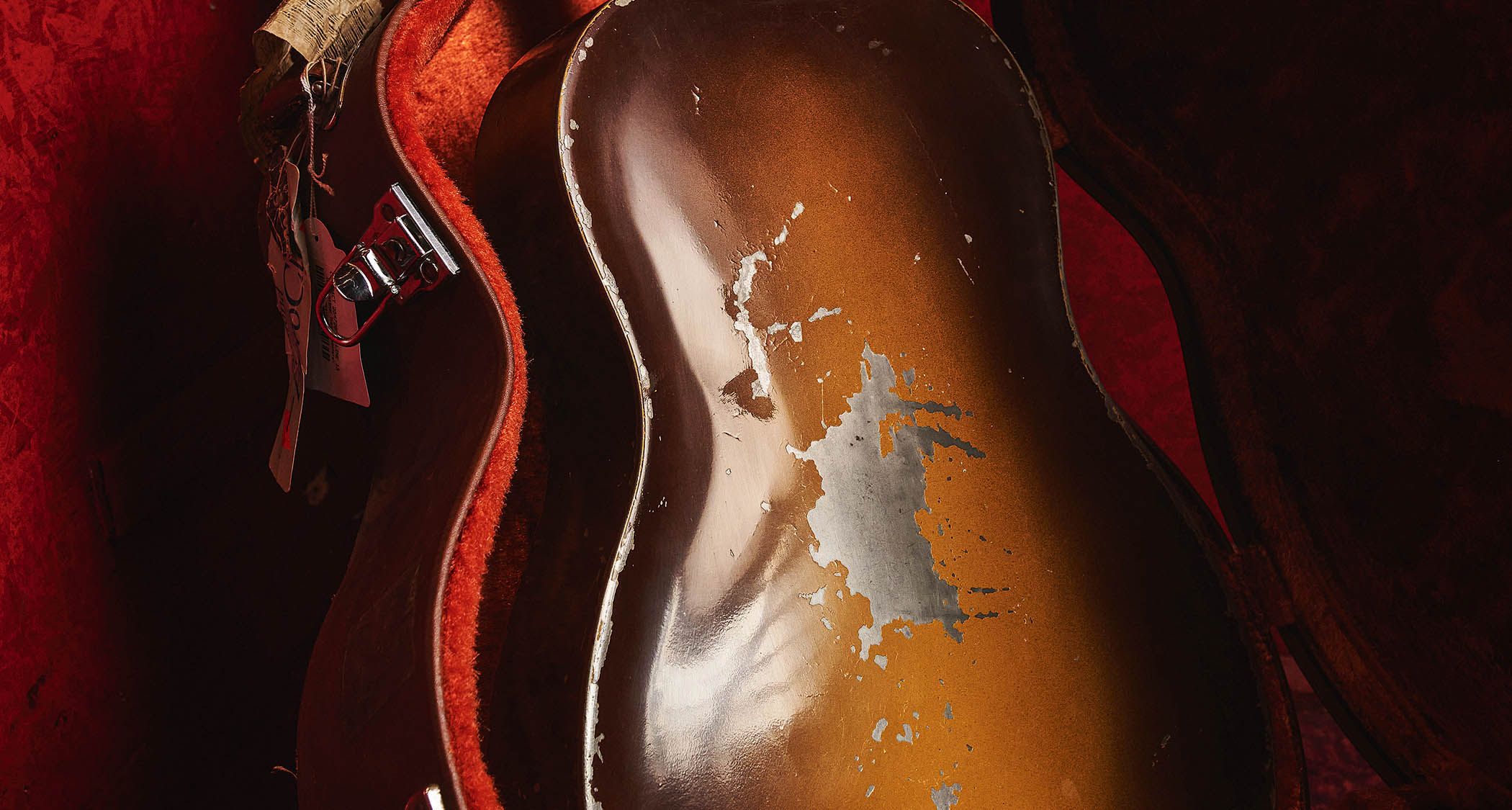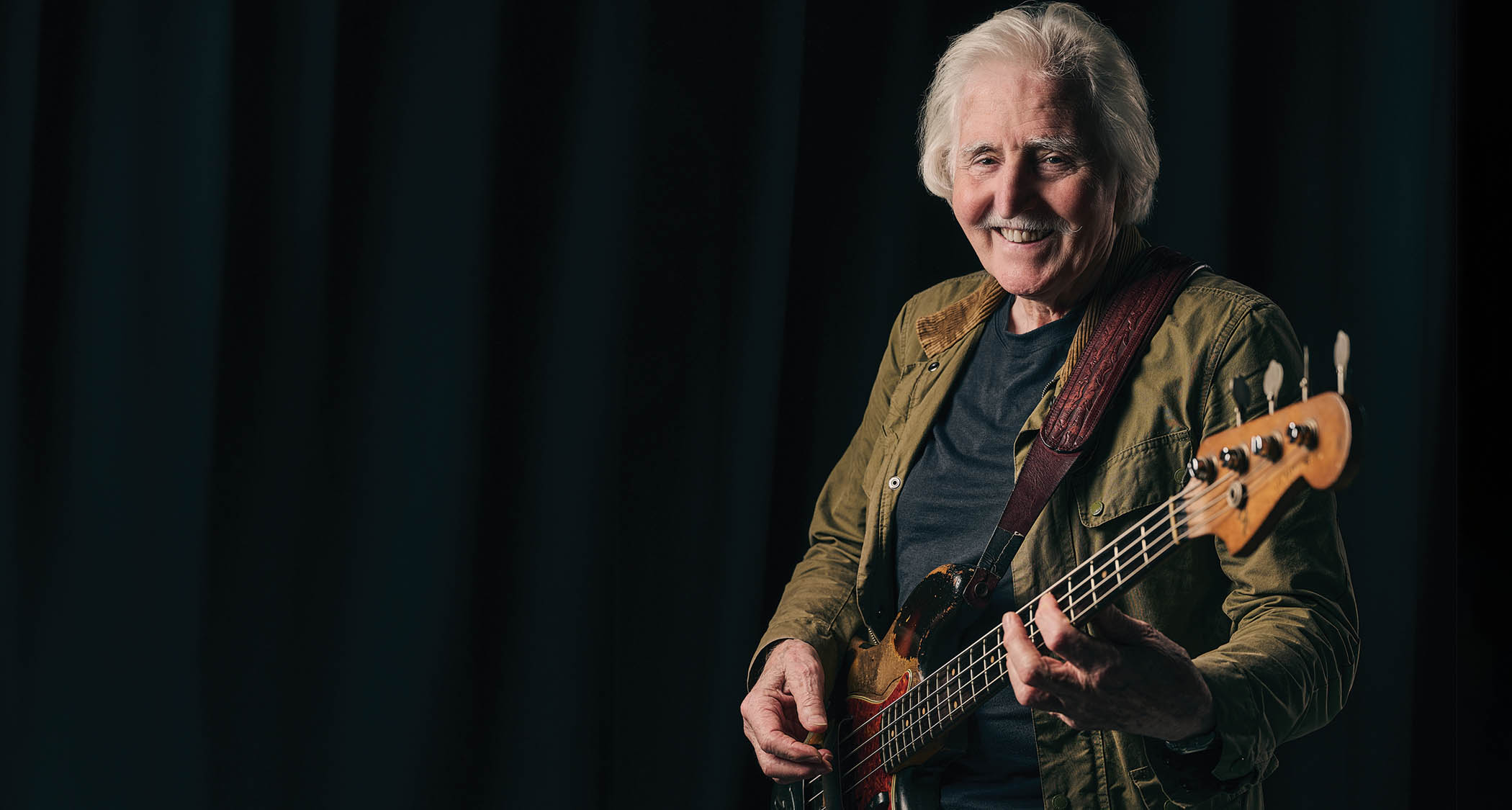“Even for a beginner to pick it up and play it, it almost plays you. I can tell you, it brings power to your hands”: The story of Rory Gallagher’s 1932 National Triolian – the resonator that had all the mojo but not the volume for his raucous live show
Rory’s battered National Triolian could be seen as the acoustic sibling of his infamously weathered 1961 Strat – though this metal workhorse could howl, too

All the latest guitar news, interviews, lessons, reviews, deals and more, direct to your inbox!
You are now subscribed
Your newsletter sign-up was successful
Fans of Rory’s famous Irish Tour ’74 album – one of the great live rock and blues recordings of our time – will know the National as the guitar used on the track As The Crow Flies, with its metallic yet soulful voice evoking so many of the old blues and roots recordings that inspired Rory growing up.
“I remember Rory picked it up in Denver, and he was particularly after a resonator like the one Scrapper Blackwell played,” Donal Gallagher recalls. Rory himself added more detail about the purchase in a 1977 interview with International Musician, stating that: “I got it from a guy in the States. You get these travelling guitar salesmen going round. I got it for a very reasonable price – about £100.

“I feel it sounds better than the steel-fronted model… It’s got more of a banjo sound and it’s got the old classical machineheads… The resonator caved in, believe it or not, so I had that beaten out again…
“The National is really good, though, even for a beginner to pick it up and play it, it almost plays you. I can tell you, it brings power to your hands, you move from that neck to the Strat and it’s like running your hand across a jelly.”
Despite its powerfully projecting sound, the guitar – serial number 513W – often struggled to be heard above the cheering of Rory’s fans on tour. Donal says this ongoing issue led to the guitar being superseded by a newer National late in Rory’s career.

“Rory didn’t have a pickup on the guitar, he just played it into the mic and let it carry,” Donal says. “I think we attempted various bugs and things, but also the paint was inclined to flake, so putting anything like glue or epoxy on it never ever worked.
“In fact, at the end of a tour Rory did in 1991, he discovered that National had brought out a solid version [of the resonator concept], called the Resolectric, which had built-in pickups. And Rory managed to get one of those, even though there was something like a year’s waiting list. In other words, they let Rory jump the queue and get his hands on one.
All the latest guitar news, interviews, lessons, reviews, deals and more, direct to your inbox!
“I remember we were on our way from San Francisco back down to LA and an arrangement was made with National, who were based in San Luis Obispo, where they agreed to drive out to the highway with the guitar. We were on the highway and we had to time it so we could pick the guitar up at a roadside truck stop.”
“The thing we had to deal with was that when Rory was playing live, his audience loved the acoustic songs, so they’d really start cheering and clapping along.
“So you were forever trying to get the volume on that guitar up above the audience as much as you possibly could; it would then start to squeak and squeal quite a bit. That Resolectric guitar eventually solved the problem of feedback.”
- The Rory Gallagher Collection will be auctioned at Bonhams in New Bond Street, London, on 17 October 2024.
Jamie Dickson is Editor-in-Chief of Guitarist magazine, Britain's best-selling and longest-running monthly for guitar players. He started his career at the Daily Telegraph in London, where his first assignment was interviewing blue-eyed soul legend Robert Palmer, going on to become a full-time author on music, writing for benchmark references such as 1001 Albums You Must Hear Before You Die and Dorling Kindersley's How To Play Guitar Step By Step. He joined Guitarist in 2011 and since then it has been his privilege to interview everyone from B.B. King to St. Vincent for Guitarist's readers, while sharing insights into scores of historic guitars, from Rory Gallagher's '61 Strat to the first Martin D-28 ever made.

